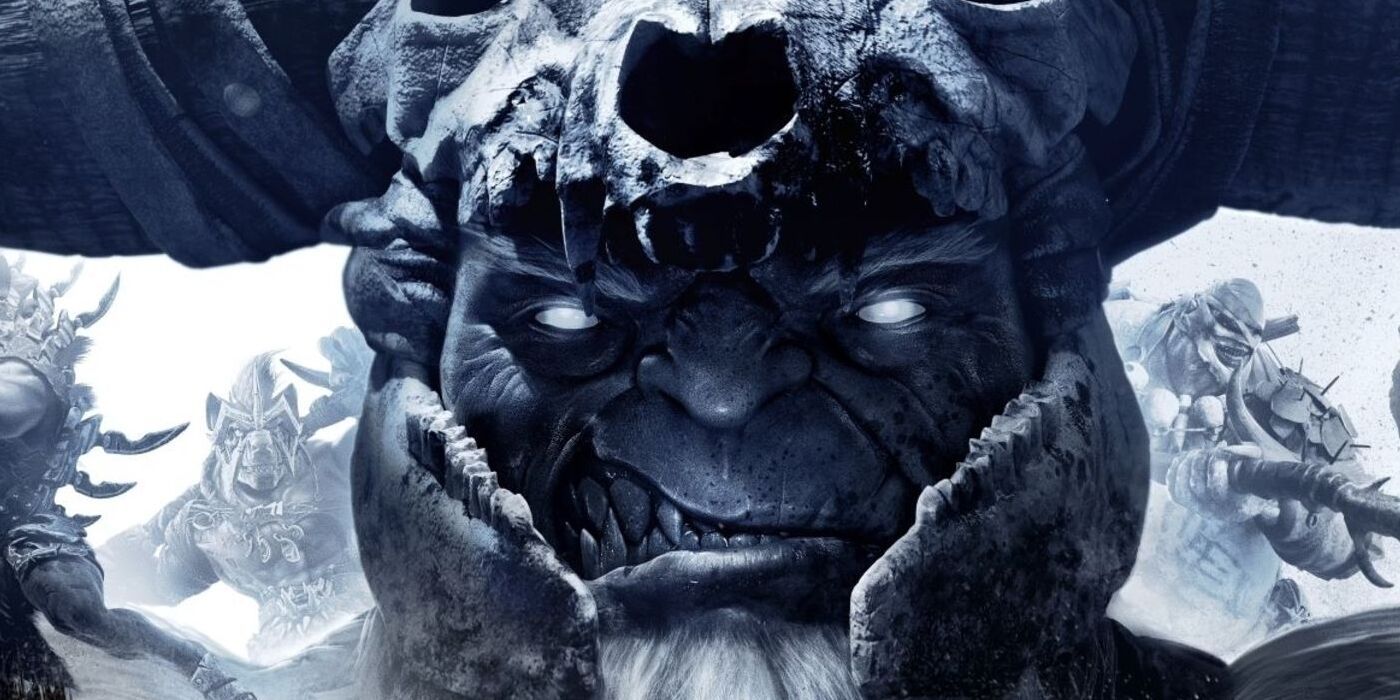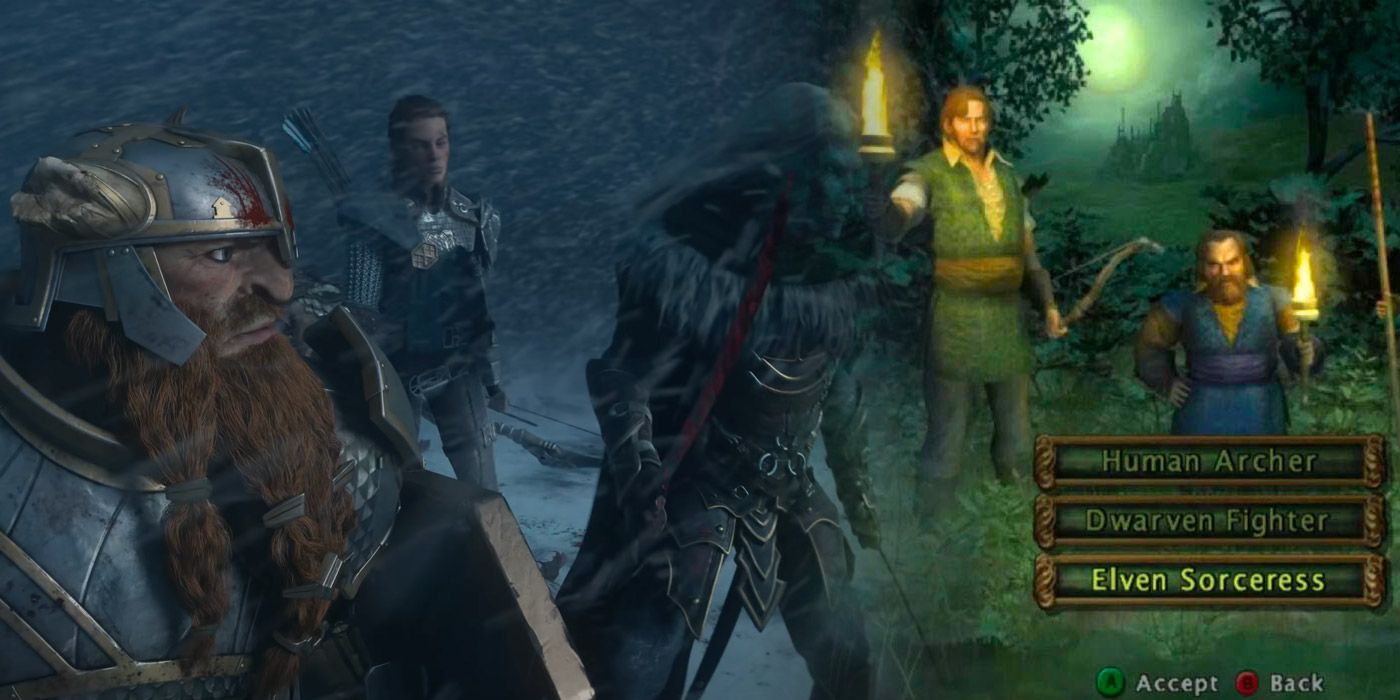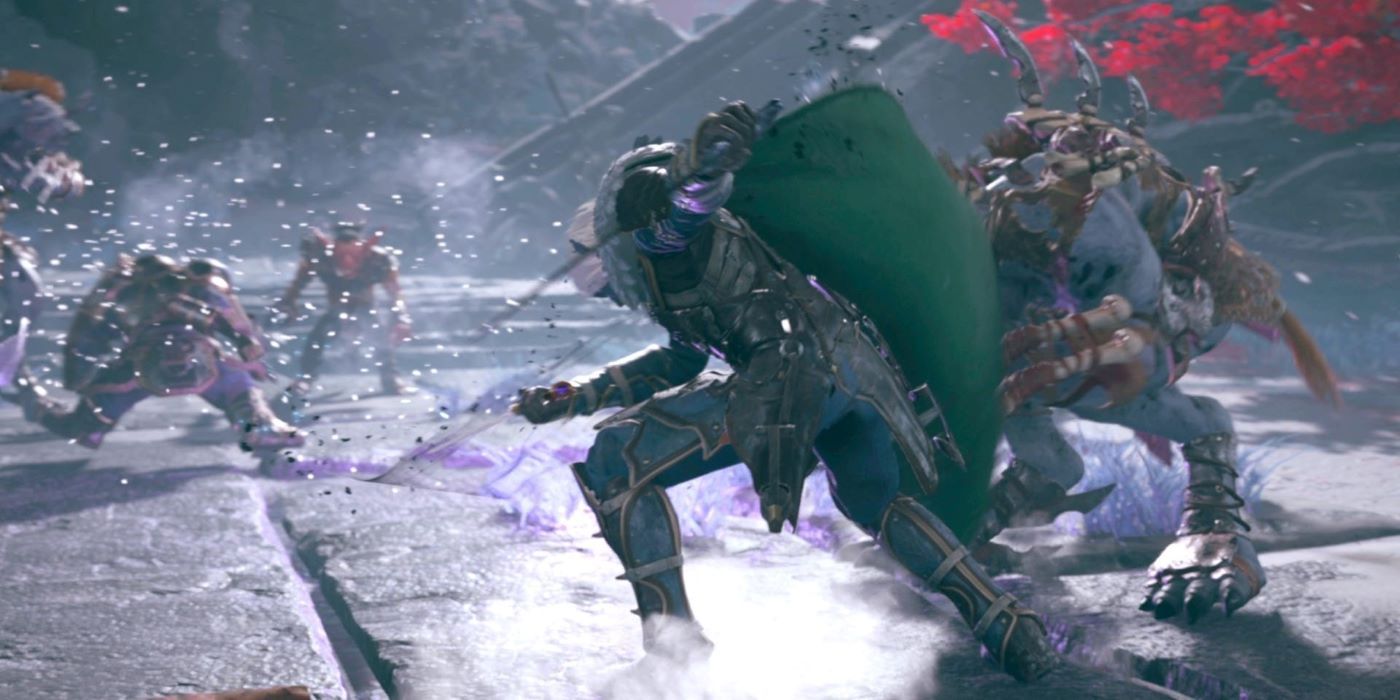
Dungeons and Dragons: Dark Alliance is set to be the spiritual successor to the Baldur's Gate: Dark Alliance series from the early 2000s. As a result, Tuque Games and Wizards of the Coast have a deep well to draw from for mechanics that could find a home in the new DnD game. Dungeons and Dragons: Dark Alliance is poised to include some fan-pleasing ideas and stay firmly within its action-RPG roots, so while it's based on the tabletop role-playing game, fans can expect a more action-orientated title rather than a deep RPG experience.
Co-op multiplayer for Dark Alliance has been confirmed, with local and online modes, and this aspect of the previous Dark Alliance games was well-regarded and might capture the attention of the fans of the older titles. Additionally, Icewind Dale author R.A. Salvatore is assisting Tuque Games with the new title which is good news for fans of the Baldur's Gate-set predecessors.
RELATED: The Future Looks Bright for Dungeons and Dragons-Based Games

Baldur's Gate: Dark Alliance differentiated itself from its RPG roots by focusing on action. Dungeons and Dragons is a rule-heavy tabletop game and the original Dark Alliance games sought to appeal a more casual audience, and the new title looks to continue this same tradition by retaining the action-heavy gameplay. There will be RPG elements like attribute distribution and levelling up, but it perhaps would be in the best interest of Tuque Games to avoid leaning into these mechanics too heavily. Fans of the Dark Alliance games from the 2000s are likely to expect a less RPG-intensive experience and more hack n' slash gameplay along the lines of Diablo.
Baldur's Gate: Dark Alliance and its sequel featured a wide array of monsters to hack through. The Dungeons and Dragons source material is rife with creatures of all varieties that could find their place in this new title as adversaries to Drizzt Do'Urdern and his Company of the Hall. Baldur's Gate: Dark Alliance 2, in particular, boasted a huge variety of enemies for players to fight, so Tuque Games may want to match this level of beastly diversity in their upcoming ARPG. The strange, grotesque, and frightening monsters of DnD could help make the gameplay varied enough to hold the interest of players.

One of the strengths of original Dark Alliance games was the different gameplay experiences offered by each playable character. Each protagonist gave players a chance to try ranged, magic, and melee playstyles which contributed to replayability and diverse gameplay. Fan-favourite Drizzt Do'Urdern, Bruenor Battlehammer, Catti-Brie, and Wulfgar are the playable characters in Dungeons and Dragons: Dark Alliance, and fortunately, they inherently have differing abilities. Tuque Games has picked a good cast of characters in this respect, and it's important for the company to hone in on their differences to make them stand out. Much like Baldur's Gate: Dark Alliance, a range of different experiences could keep players in the game and have fun in co-op too.
Another idea that Tuque Games could look at keeping from the old Dark Alliance games is designing their new title as a linear experience. The original Baldur's Gate spin-offs were primarily linear but allowed some flexibility in approaching side quests. Open-world environments in contemporary gaming are very popular, and there is the prospect that the new Dark Alliance could get lost in the shuffle if Tuque Games decided to go down this route. Moreover, a linear path would not only be in line with the old games but might also help the Dungeons and Dragons: Dark Alliance stand out from the crowd. This could provide the developer with more opportunities to show off the enormous Dungeons and Dragons bestiary through more set, focused encounters.
There are several new Dungeons and Dragons games in development at the moment. Fans can expect these new titles to be released on PC and home consoles, but it might be important for Tuque Games to primarily develop Dungeons and Dragons: Dark Alliance as a console experience. This was the approach taken with the initial Baldur's Gate spin-offs, and those games saw great financial success. With a couch co-operative mode confirmed, a console-first approach may help Tuque Games make this even more appealing to non-PC gamers.
Dungeons and Dragons: Dark Alliance is just the start of a renewed push for DnD games. The new release from Tuque Games has a deep lineage, and if the team decide to leverage that, it could make a lot of their pre-built fanbase happy. There is a lot about Dark Alliance that gamers don't know yet, but based on released the available information, Tuque Games and Wizards of the Coast could have a promising future with this DnD game.
Dungeons and Dragons: Dark Alliance is currently due for release in 2021 on PC, PS4, Switch, and Xbox One.
MORE: How Cattie-Brie Could Play in Dungeons and Dragons: Dark Alliance

